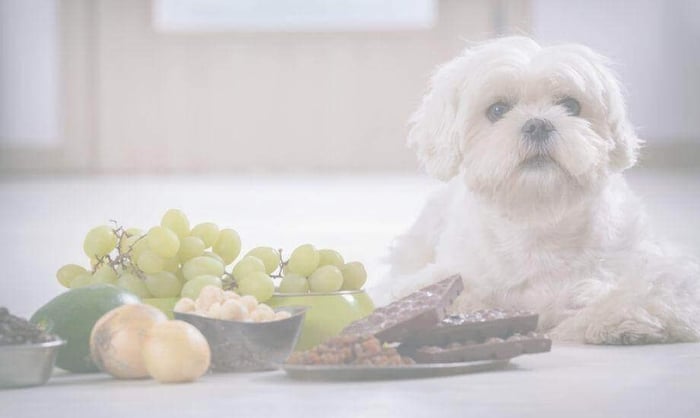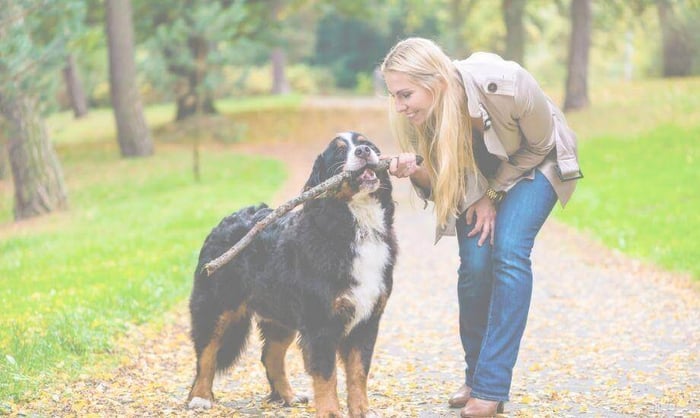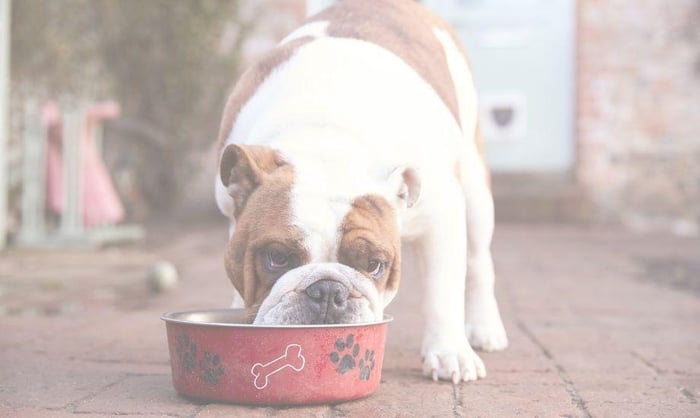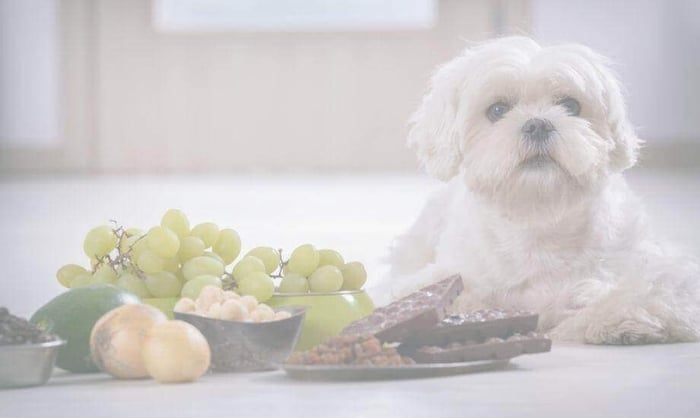Have you trained your dog on the “leave it” command? If not, now may be a great time to start! It’s a really important command since some common foods found in our homes can be quite toxic to our pups! Here are 5 toxic foods that you may not know to watch out for.
☕Caffeine
We all know that chocolate isn’t good for our four-legged family, but do you know why? Dairy products can sometimes cause gastrointestinal upset in our dogs, but caffeine is another big trigger! This is also why the darker the chocolate, the more significant the risk, which varies based on the amount consumed and the size of your pet as well. Chocolate can also sometimes contain xylitol (also found in some peanut butters, children’s medicines, and gum) which is a toxic sugar-free sweetener.Other sources of caffeine, such as coffee beans/grounds, sodas and energy drinks can be dangerous, too. Watch for signs such as hyperactivity, GI upset, elevated heart rate / blood pressure / body temperature, seizures, or collapsing.
🚫Alcohol
Continuing on with beverages that can be harmful to our pups, alcohol is also poisonous. This is not something that is commonly knowingly given to pets, but dogs who counter-surf may sneak some from a glass, or if a drink is spilled they will often “help’ clean it up. Alcohol can cause lethargy, incoordination, drooling, weakness, vomiting, collapse, and a decrease in respiratory rate / blood sugar / blood pressure / body temperature. Hops, used in brewing beer, can be highly toxic for animalsAs home brewing becomes more popular, this is an increasing risk and can be fatal if left untreated. COVID-19 and lockdowns have presented another alcohol risk to our buds - bread making! Raw bread dough can contain ethanol (alcohol), so make sure to keep your dog away from your latest COVID baking project.
🍇Grapes And Raisins
This group actually includes grapes, raisins, sultanas, some currants, and any other grape-based product like trail mix with raisins, grape juice, etc. Grapes can cause acute kidney failure in our dogs, and perhaps most concerning of all: this toxicity does not seem to be dose-dependent. There is still no concrete answer on what causes this toxicity but contact your vet right away if you notice your pup has gotten into one of these foods. Possible symptoms of grape toxicity include vomiting, diarrhea, food refusal, and kidney failure.
🧄Garlic And Onion
This whole family of foods is toxic to pets and includes garlic, onion, chives, and leeks. Out of these, garlic poses the greatest risk at about five times the toxicity than leeks and onion. Certain breeds seem to be more prone to garlic toxicity than others. Along with GI upset, garlic and onion can cause damage to the red blood cells, which can cause secondary anemia. Symptoms of anemia include pale gums, lethargy, increased heart / respiratory rates, collapsing, weakness, and exercise intolerance. It is important to note that symptoms of garlic toxicity may not be evident until a few days after ingestion.
🚫Avocados, And Fruit Pits
Small amounts of avocado are usually safe for our pets as dogs and cats are not overly sensitive to persin, the toxin contained in avocados. Too much avocado can cause pancreatitis (inflammation of the pancreas) due to the high fat content of this food. Perhaps the biggest risk is actually the avocado seed (commonly referred to as a pit) as this poses a choking risk. Other fruits such as apricots and apples contain cyanide in their seeds, and although it would require ingestion of a large amount of these seeds, it is safest to avoid the risk. Pits and large seeds can definitely pose a large choking hazard as well.
🚫Bonus Fat Trimmings And Small Bones
Although these are not poisonous to our dogs, they can present some real health risks. Very fatty foods can lead to pancreatitis, a painful condition for your dog to suffer through that often brings with it expensive veterinary bills. Bones, particularly when small and cooked, can lead to choking or splinter and cause a perforation risk.
If you suspect your dog has ingested any of these toxic foods, it is always best to call your veterinarian immediately. If you want to learn more about common poisons, check out https://www.petpoisonhelpline.com/ and keep checking back on The Bud Blog for the month of March as we look at other poison prevention tips for your pup!






